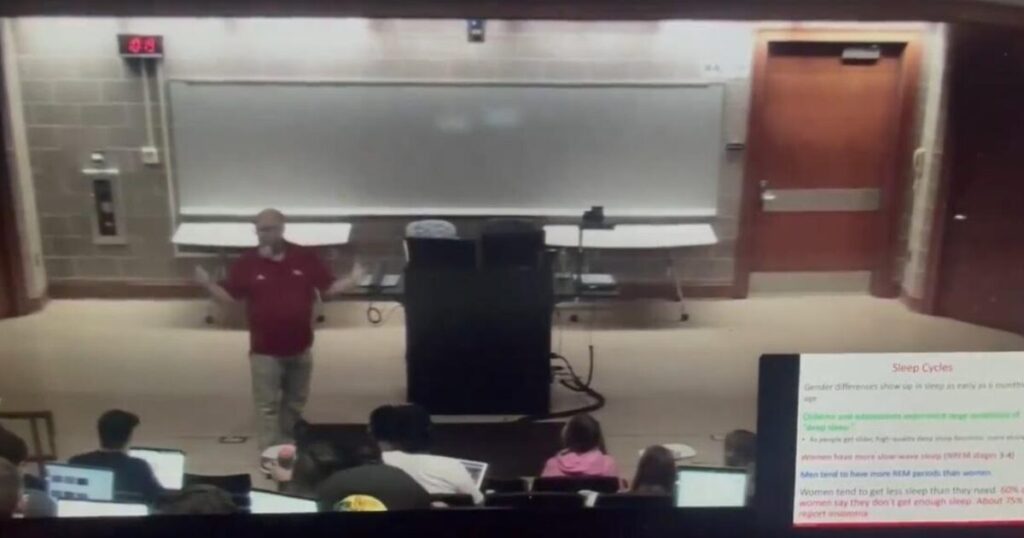University Professor’s Controversial Remarks Lead to Departure
Phil Lowcock, a professor at the University of Kansas, has left the institution following the fallout from a viral video that captured him making incendiary remarks during a lecture. Lowcock, who taught in the Department of Health, Sport & Exercise Sciences, was placed on administrative leave as a measure of caution after the video, which contained suggestions of political violence, began circulating. The video showed him discussing gender biases among voters, specifically targeting those who might not support Kamala Harris on the basis of her gender. His comments sparked outrage and a swift response from the university administration, which confirmed his departure shortly thereafter.
In the video, Lowcock expressed his frustration with men who, in his view, are not supportive of a female presidential candidate merely because she is a woman. He emphasized his belief that such attitudes reflect a lack of understanding of contemporary societal dynamics. His assertion that these men should "be lined up and shot" drew sharp criticism and raised serious ethical questions regarding the appropriateness of language used in an academic setting. His outburst not only reflected a moment of impassioned rhetoric but also underscored ongoing discussions about gender equality and the political landscape, particularly in the context of female candidates in high-stakes elections.
Following the emergence of the video, authorities at the University of Kansas immediately took action. Professor Jonathan Brumberg from the Department of Psychology confirmed that Lowcock was placed on administrative leave pending further investigation into the incident. The university’s leadership, including Provost & Executive Vice Chancellor Barbara A. Bichelmeyer, recognized the gravity of the situation resulting from Lowcock’s comments and took steps to ensure a thorough review of the matter. This decision highlighted the institution’s commitment to maintaining a respectful and safe academic environment, free from harmful rhetoric that could incite violence or discrimination.
As the situation unfolded, Lowcock attempted to mitigate the backlash by asking for his statement to be retracted, showing awareness of the inappropriateness of his comments. He requested that his provocative statement be removed from the class recording, indicating a recognition that such violent language has no place in educational discourse. Nevertheless, the damage had been done. The viral nature of the recording meant that his remarks were widely disseminated, fueling debates over freedom of speech, political expression in academia, and the responsibilities of educators in discussing sensitive socio-political issues.
The controversy quickly ignited discussions online, with various commentators and political figures expressing their discontent regarding Lowcock’s remarks. Critics underscored the inconsistency in political discourse, questioning how educators could advocate for civility while simultaneously using violent rhetoric. Some called for a reevaluation of academic freedom and accountability, arguing that professors must exemplify the very principles of respect and dialogue that they seek to instill in their students. This incident opened the door for broader conversations about how political opinions should be expressed in educational contexts and the potential repercussions of extreme views voiced by faculty members.
Ultimately, Phil Lowcock’s resignation serves as a cautionary tale of the complexities surrounding political speech in academic settings. It sheds light on the need for educators to navigate the fine line between passionate advocacy for social justice and the ethical implications of endorsing violence, even hypothetically. As universities grapple with instances of controversial speech, they must continually assess their policies and practices to balance the principles of academic freedom with the imperative to cultivate a respectful learning environment. This incident at the University of Kansas echoes a larger national dialogue on gender, politics, and the role of education in shaping democratic discourse.

